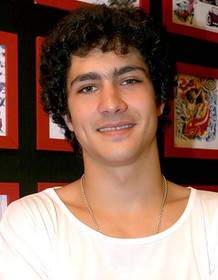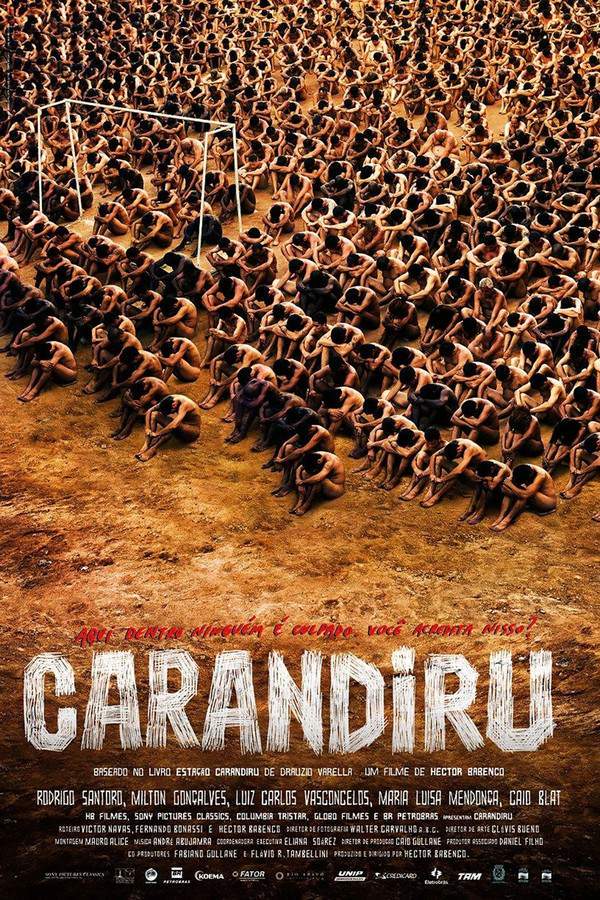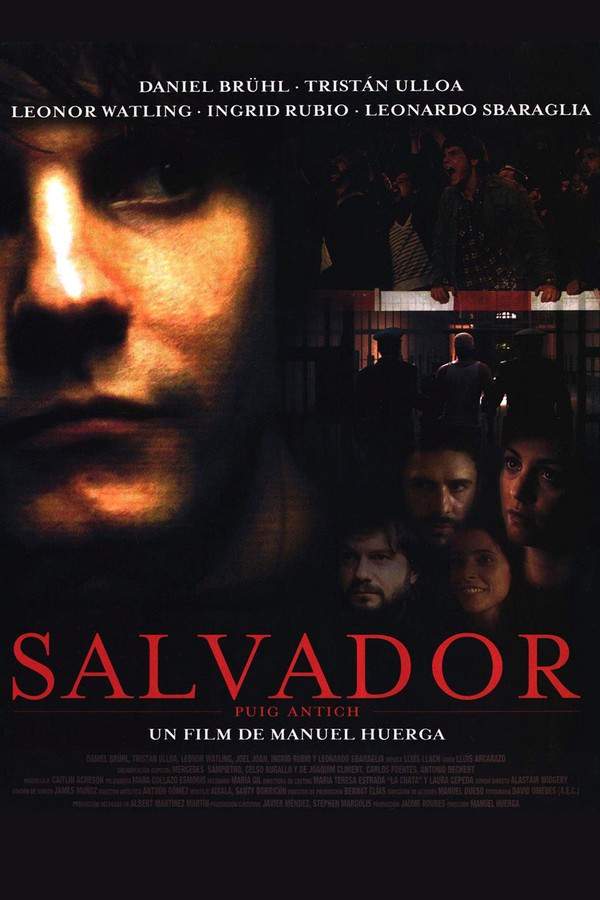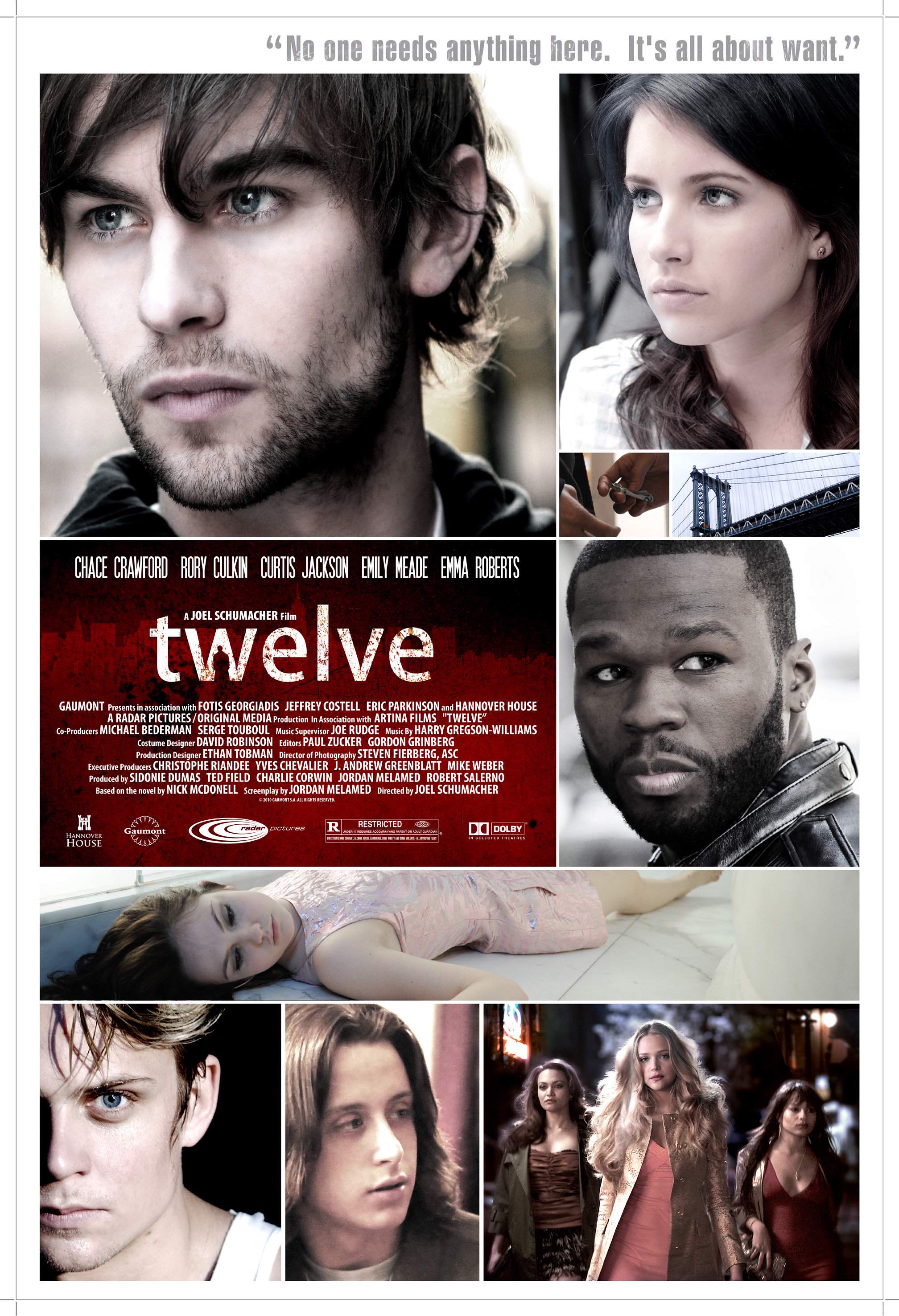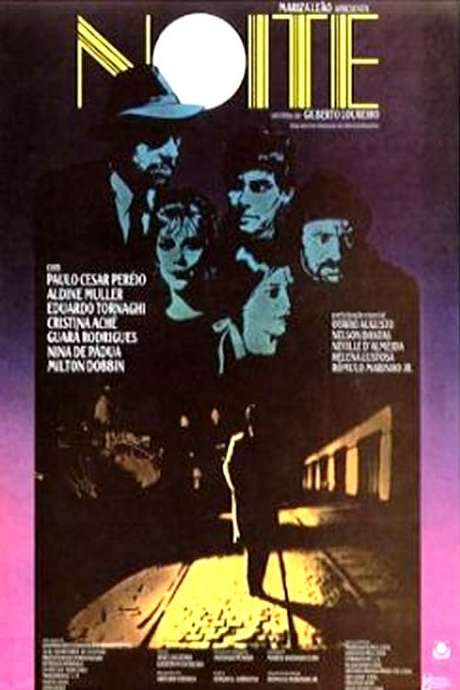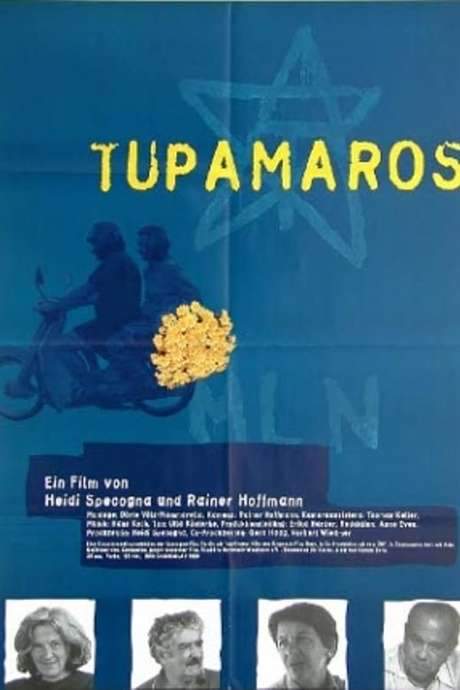A Twelve Year Night 2018
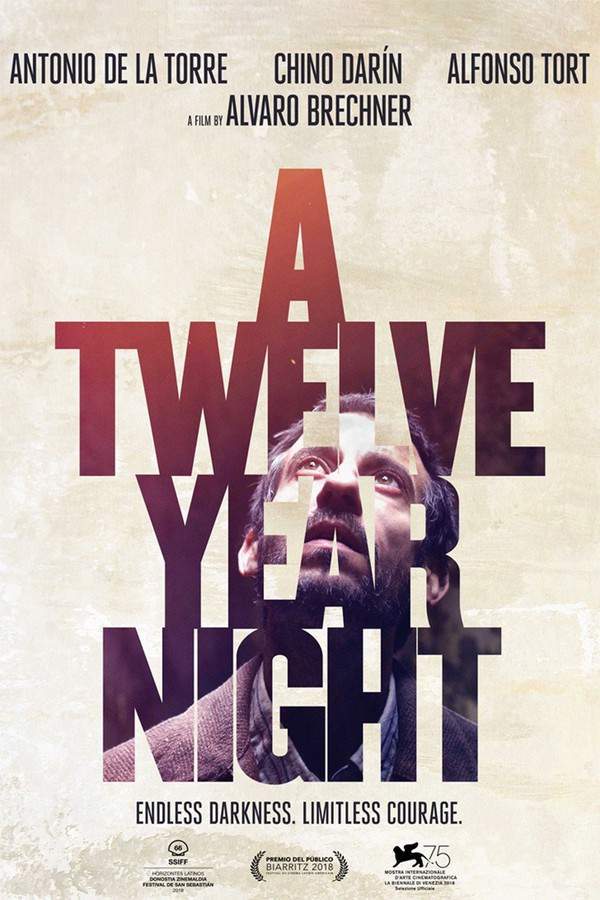
In 1973, under Uruguay's military regime, three Tupamaro prisoners are subjected to a brutal and clandestine plan. They are taken to a clandestine prison facility and held in solitary confinement without trial. For twelve years, Pepe Mujica, one of the prisoners and a future president, faces relentless psychological warfare and extreme conditions. Despite the cruelty and despair, his spirit remains defiant throughout his ordeal.
Does A Twelve Year Night have end credit scenes?
No!
A Twelve Year Night does not have end credit scenes. You can leave when the credits roll.
Meet the Full Cast and Actors of A Twelve Year Night
Explore the complete cast of A Twelve Year Night, including both lead and supporting actors. Learn who plays each character, discover their past roles and achievements, and find out what makes this ensemble cast stand out in the world of film and television.
External Links and Streaming Options
Discover where to watch A Twelve Year Night online, including streaming platforms, rental options, and official sources. Compare reviews, ratings, and in-depth movie information across sites like IMDb, TMDb, Wikipedia or Rotten Tomatoes.
Ratings and Reviews for A Twelve Year Night
See how A Twelve Year Night is rated across major platforms like IMDb, Metacritic, and TMDb. Compare audience scores and critic reviews to understand where A Twelve Year Night stands among top-rated movies in its genre.

The Movie Echo Score
A Twelve-Year Night delivers an immersive study of human endurance under extreme conditions. Through precise direction and immersive production design, the film immerses viewers in twelve years of solitary confinement. Nuanced performances convey deep emotional resonance even as measured pacing and occasional repetitions temper narrative momentum. The result is a powerful dramatic experience that captivates through performance and atmosphere while maintaining a sobering realism.
The Movie Echo Score Breakdown for A Twelve Year Night

Art & Craft
In terms of Art & Craft, the direction and cinematography provide a compelling framework for the narrative. Álvaro Brechner’s measured shot compositions and editing choices sustain immersion in the confined setting. Production design reinforces authenticity through stark visual detail. Overall, the technical execution elevates the film’s atmosphere and underlines its thematic focus on endurance.

Character & Emotion
When it comes to Character & Emotion, the principal cast delivers nuanced performances that ground the story’s emotional weight. The portrayals of José Mujica and his companions convey palpable resilience and despair. Interpersonal dynamics remain subtle but effective, enhancing empathy. Ultimately, the film achieves a strong emotional core through committed acting and authentic character depiction.

Story & Flow
In terms of Story & Flow, the narrative draws strength from its true-life foundation and sustained engagement with the prisoners’ ordeal. The pacing is deliberate, allowing reflection on each stage of confinement, though occasional repetitions and limited background context can slow momentum. Despite these moments, the film maintains coherent progression and delivers an engaging depiction of endurance.

Sensory Experience
When it comes to Sensory Experience, the film’s sound design and score create a powerful auditory backdrop, notably through the restrained use of “The Sound of Silence.” Visual style is consistent, employing a subdued palette that reinforces the oppressive setting. Together, these elements immerse the audience in a tense atmosphere that underscores the story’s emotional intensity.

Rewatch Factor
In terms of Rewatch Factor, the film’s committed performances and immersive production offer lasting resonance. However, its deliberate pacing and heavy subject matter may lessen enjoyment on subsequent viewings. While the emotional impact endures, the repetitive structure and somber tone could deter repeated engagement. Overall, the film’s strength lies in its lasting thematic power rather than light rewatch appeal.

7.5 /10
IMDb Rating

74
%
User Score

3.8
From 51 fan ratings
Take the Ultimate A Twelve Year Night Movie Quiz
Challenge your knowledge of A Twelve Year Night with this fun and interactive movie quiz. Test yourself on key plot points, iconic characters, hidden details, and memorable moments to see how well you really know the film.
A Twelve Year Night Quiz: Test your knowledge on the gripping story of imprisonment and resilience during Uruguay's turbulent years.
What years does 'A Twelve Year Night' take place?
1965-1973
1973-1980
1980-1985
1975-1980
Show hint
Full Plot Summary and Ending Explained for A Twelve Year Night
Read the complete plot summary of A Twelve Year Night, including all major events, twists, and the full ending explained in detail. Explore key characters, themes, hidden meanings, and everything you need to understand the story from beginning to end.
In 1973 Uruguay, the nation is under the oppressive grip of a civic-military dictatorship, with the National Army engaged in violent battles against the leftist Tupamaros group. Three courageous members of the Tupamaros—José “Pepe” Mujica (Antonio de la Torre), Mauricio Rosencof (Chino Darín), and Eleuterio Fernández Huidobro (Alfonso Tort)—are captured and confined as hostages in a prison controlled by the government. Over the next twelve harrowing years, the trio endures repeated transfers to various military facilities scattered throughout the country.
As mounting international scrutiny prevents the military from executing them, they resort to psychological torment instead. The hostages are subjected to humiliating petty rules and severe abuses, including solitary confinement and even a staged execution. In a rare show of compassion under pressure from the hostages’ families, the military chief reluctantly grants a brief opportunity for the men to reunite on the prison grounds, but with an ominous warning to maintain silence.
In 1975, Pepe experiences a drastic separation from his comrades, being imprisoned in the dark confines of a grain silo. His isolation leads him to suffer from severe mental delusions, prompting haunting hallucinations of his mother. Meanwhile, in a different facility, Rosencof forms an unexpected bond with Sargento Alzamora (César Bordón), aiding him in crafting a heartfelt letter to a girl he admires. Eventually, the trio reunites and is transported to a hidden underground prison in 1978. Tragically, Pepe is thrust into complete isolation, spiraling further into despair as he clings to memories of his capture and grapples with the fear of being forgotten by time.
Their fate shifts as they are moved to another prison boasting improved conditions, granted special privileges in a deceptive tactic to mislead a visiting Red Cross delegation. However, these privileges are swiftly rescinded once the delegation departs. The discovery of a bar of soap with mysterious inscriptions in Huidobro’s possession leads to intense scrutiny, ultimately exonerating him but triggering a grim remark from the military chief about his failure to eliminate them.
After a series of items sent by his mother are unjustly taken, Pepe disrupts a military event occurring close to his cell, resulting in an order for him to see a psychiatrist, who vows to highlight his dire situation. By 1980, the government faces a significant defeat in a referendum aimed at amending the constitution to entrench the military’s power.
Fast forward to 1983, the hostages find themselves in another prison, where Rosencof encounters Alzamora, now serving as a chief guard. Alzamora, having married in the intervening years, expresses gratitude to Rosencof, which allows the three men increased freedoms under his supervision. The struggle culminates in 1985 when the military finally releases Pepe, Rosencof, and Huidobro among a wave of political prisoners during a general amnesty, leading to an emotional reunion with their families.
Uncover the Details: Timeline, Characters, Themes, and Beyond!

Coming soon on iOS and Android
The Plot Explained Mobile App
From blockbusters to hidden gems — dive into movie stories anytime, anywhere. Save your favorites, discover plots faster, and never miss a twist again.
Sign up to be the first to know when we launch. Your email stays private — always.
Watch Trailers, Clips & Behind-the-Scenes for A Twelve Year Night
Watch official trailers, exclusive clips, cast interviews, and behind-the-scenes footage from A Twelve Year Night. Dive deeper into the making of the film, its standout moments, and key production insights.
A Twelve Year Night Themes and Keywords
Discover the central themes, ideas, and keywords that define the movie’s story, tone, and message. Analyze the film’s deeper meanings, genre influences, and recurring concepts.
A Twelve Year Night Other Names and Titles
Explore the various alternative titles, translations, and other names used for A Twelve Year Night across different regions and languages. Understand how the film is marketed and recognized worldwide.
Similar Movies To A Twelve Year Night You Should Know About
Browse a curated list of movies similar in genre, tone, characters, or story structure. Discover new titles like the one you're watching, perfect for fans of related plots, vibes, or cinematic styles.
Quick Links: Summary, Cast, Ratings, More

What's After the Movie?
Not sure whether to stay after the credits? Find out!
Explore Our Movie Platform
New Movie Releases (2025)
Famous Movie Actors
Top Film Production Studios
Movie Plot Summaries & Endings
Major Movie Awards & Winners
Best Concert Films & Music Documentaries
Movie Collections and Curated Lists
© 2025 What's After the Movie. All rights reserved.








